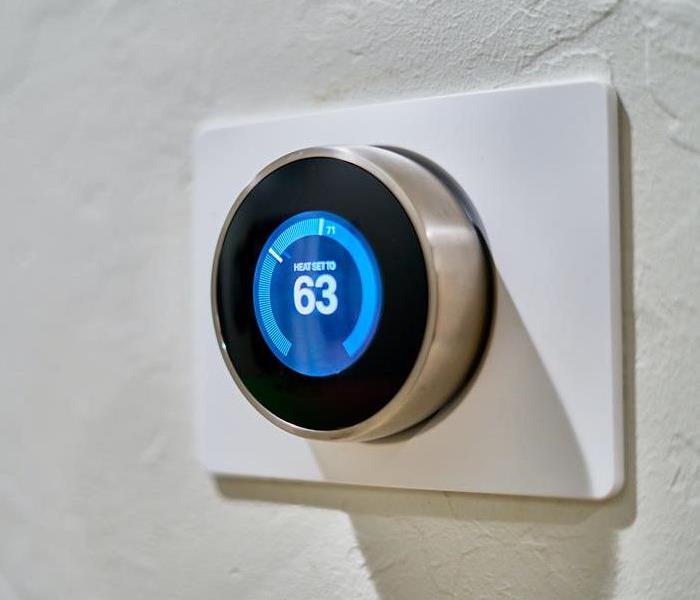HVAC Fire Safety This Summer
5/20/2022 (Permalink)
 During the summer months, your home or business is kept cool by your HVAC unit, but did you know that they can present fire hazards?
During the summer months, your home or business is kept cool by your HVAC unit, but did you know that they can present fire hazards?
During the summer months, your home or business is kept cool by your heating, ventilation, and air conditioning unit. All the while, your HVAC unit can pose fire hazards if they aren’t properly maintained. Because HVAC fires can cause devastating damage, it is crucial that your HVAC unit is inspected and professionally serviced on a regular basis. We’ll introduce you to three common causes of HVAC fires in this blog. With a deeper understanding of how HVAC fires ignite, you can be proactive and protect your home or business from a fire emergency as a result of your HVAC unit malfunctioning this summer.
Overheated Motor
If your HVAC unit’s motor starts overworking, it can overheat and catch fire. Your HVAC unit’s motor can overheat for a variety of reasons. For example, dirt or debris occupying the space surrounding the unit’s motor can serve as an insulator, which causes the motor to overheat. You can prevent a fire from igniting as a result of your HVAC motor overworking by ensuring that your HVAC unit is regularly cleaned. Your unit’s motor can also overheat if there is either an abundance or shortage of voltage applied to power the motor.
Electrical Issues
It is possible that your HVAC unit may catch fire as a result of faulty wiring or electrical issues. Usually, electrical connections naturally loosen over time. Sometimes, if corroded or frayed wires are not replaced or repaired quickly, they can cause electrical shorts and this can cause fires to ignite. In order to avoid electrical complications, schedule regular HVAC unit inspections and ensure that wires are replaced when necessary.
Leaking Fuel Line
Leaking fuel lines can lead to gas leaks in your home or business. A fire can ignite if the leaking gas comes into contact with heat. In the event that you smell gas in your home or business, especially if the smell appears to be emanating from your HVAC unit, it is critical to treat the situation seriously.
We Are HVAC Professionals
Our SERVPRO Disaster Recovery Team - Team Wall team members are knowledgeable and experienced HVAC professionals. You can trust us to thoroughly inspect and service your home or business’ HVAC unit. Homeowners and business owners are recommended to schedule biannual HVAC unit inspections in order to most effectively maintain the unit and prevent fires. Learn more about our HVAC Cleaning, Cleaning Services, and Fire Damage Restoration services in case of an emergency, check out their respective pages on our website. You can also call your local SERVPRO Team Wall office, SERVPRO of Metro Pittsburgh East, at (412) 672-5400.





 24/7 Emergency Service
24/7 Emergency Service